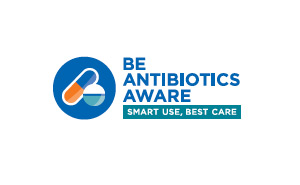Many of us have been there. You’re feeling awful, you make a trip to the doctor, and what you want is for them to give you something to make you feel better, usually an antibiotic. But that’s not always the answer. In fact, over-prescribing antibiotics is causing some big problems.
According to a 2021 Centers for Disease Control and Prevention report, an estimated 30 percent of the approximately 211 million outpatient antibiotic prescriptions given in the U.S. were not necessary, meaning that no antibiotic was needed at all. Another 20 percent were prescribed with inappropriate doses or durations.
“On the one hand, antibiotics are absolutely miraculous,” said Meghan Brett, MD, The University of New Mexico Hospital’s medical director for Antimicrobial Stewardship. “But at the same time, antibiotics are not without risks.”
A new UNM Hospital outpatient program is working with providers to ensure that patients are prescribed the right antibiotics when needed and is supporting providers and patients when antibiotics are not needed.
On the one hand, antibiotics are absolutely miraculous, but at the same time, antibiotics are not without risks, too.
In New Mexico, doctors have seen sustained rates of infection with Clostridioides difficile (C. diff), an antibiotic-associated infection that leads to diarrhea and colitis (inflammation of the colon).
“It's counterintuitive that you get another infection when you take antibiotics, but it's because of the changes that antibiotics make to our gut make you susceptible to C. diff infections,” Brett said.
The other problem with taking antibiotics when you don’t need them: antimicrobial resistance. This occurs when germs like bacteria and fungi evolve to develop the ability to defeat the drugs designed to kill them. “As that happens, we may not have the antibiotics we need to treat the infections that people develop,” Brett said.
Diari Gilliam, PharmD, PhC, heads up UNM Hospital’s new outpatient antimicrobial stewardship program. She says the program has two main goals. “No. 1, track our antibiotic prescribing,” she said. “No. 2, provide education and the expertise of infectious diseases-trained providers to our outpatient clinics to help better prescribe antibiotics.”
The program started in August 2022 and is currently working with UNM Hospital’s primary care outpatient clinics to develop guidelines and protocols. “We want to help folks make better decisions with antibiotics or to not prescribe antibiotics when patients don't need them,” Gilliam said.
The program’s starting point is creating guidelines for respiratory tract infections. “That's where a lot of inappropriate prescribing is happening,” Gilliam said. “We’re working on creating a baseline consensus on when prescribing is appropriate.”
Brett adds the program is not only about having conversations with providers, but about how to better communicate with patients as well. “It’s about figuring out how to have effective conversations with patients about when antibiotics are needed and when they might not be needed at all,” she said.
“For example, not getting antibiotics when you go to see the doctor with an upper respiratory infection is a reasonable outcome,” Brett said. “I think that's hard for people sometimes, because you want something to make you feel better as soon as possible. And sometimes, unfortunately, it takes time to feel better.”
Brett says the best thing patients can do is to try to reduce their risk of infections to begin with by doing things like eating well, getting enough sleep and staying hydrated. “All of those things actually do make a difference.”
“I get wanting to feel better,” Brett said. “But sometimes that may just be a reminder to slow down and take care of yourself.”
MORE INFORMATION:
CDC Antibiotic Facts (click on PDF in Downloads section for more information)
- When antibiotics are NOT needed, they won’t help, and the side effects could still hurt you.
- Antibiotics DO NOT work on viruses like colds, flu or runny noses.
- Antibiotics are ONLY needed for treating certain infections caused by bacteria.
- Common bacterial infections, like most cases of bronchitis, many sinus infections and some ear infections, will NOT be helped by antibiotics.



